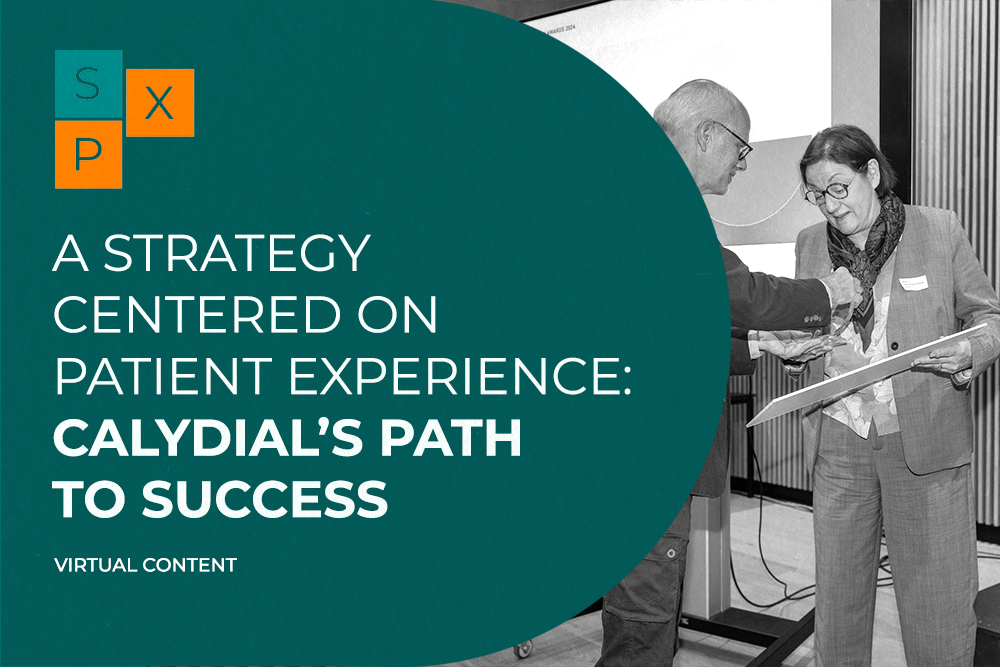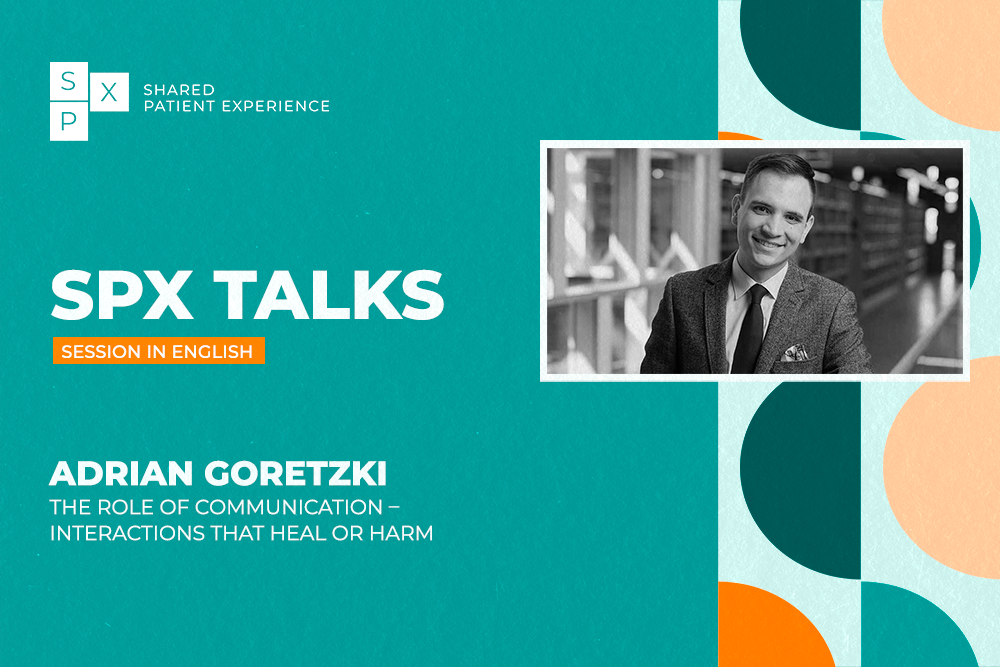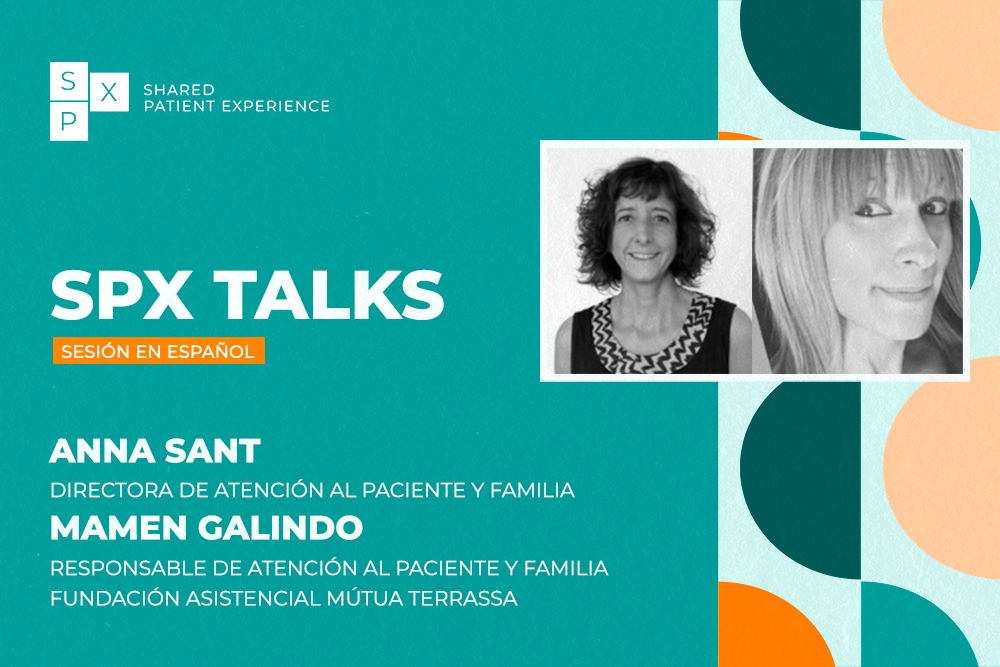
A strategy centered on Patient Experience: Calydial’s path to success
CALYDIAL, a healthcare facility specialising in the management of chronic kidney disease, won the 4th SPX European Awards in the ‘Patient Experience in Outpatient Institutions’ category. Its innovative initiative to create a board dedicated to patient experience places patients’ experiences at the heart of its strategy, raising awareness among patients and professionals on an operational and ongoing basis. We met with the members of CALYDIAL to find out more about the ambitions and challenges of this project.

What led you to create a board centred on patient experience?
CALYDIAL is a French organisation member of FEHAP (Fédération des Établissements Hospitaliers et d’Aide à la Personne privés solidaires) working in the field of chronic kidney disease, a silent illness with potentially serious consequences, namely dialysis. CALYDIAL has always developed treatment methods and preventive actions in partnership with patients: developing autonomy, home treatment, therapeutic education programmes. From the outset, CALYDIAL has sought to promote healthcare democracy by involving patients in the implementation of its organisational project. So, with the 2002 law on patients‘ rights, we set up a users’ committee that quickly became an open door. In order to broaden our remit, particularly by developing the patient experience, we decided to set up a board focusing on the patient experience.
What difficulties did you encounter in developing it and how did you overcome them?
The operation of the CDU (Commissions Des Usagers – Users’ Committees) is institutional: at CALYDIAL, it is chaired by a user representative. Our volunteer user representatives, chosen by the ARS (Agence Régionale de Santé – Regional Health Agency) , are involved but relatively isolated. We have chosen to strengthen the role of users by employing a patient advisor in the quality department, who is responsible for developing the patient experience, in conjunction with our user representatives and the CDU. This patient advisor was very committed, but we quickly realised that she was isolated, and that she needed to get a team on board to help her achieve her mission. So, to enable her to drive forward healthcare democracy, experience and the development of the patient experience at CALYDIAL, we decided to set up a board dedicated to Patient Experience with an operational team. All of this has been done in a drive to improve the quality and safety of care, stimulated by our preparations for certification, which we passed with flying colours, with 100% of our patient-related objectives achieved.
How has your project evolved from its launch in March 2020 to the present day?
Our project has evolved since 2020, starting with the need to make the work of our patient experience board leader more secure and comfortable. She needs to be able to work with confidence, with appropriate training, and the possibility of support and assistance in the event of problems that could lead back to her personal situation. It’s not easy being a salaried patient and also suffering from chronic kidney disease working for patients with CKD (Chronic Kidney Disease).
Secondly, by opening up the board to other users: we have established a work programme and a link with user representatives, as well as patient partners and employees responsible for patient pathways, and quality managers, and always in close collaboration with medical and administrative management.
We have also demonstrated our original approach to the outside world, showing that the development of the patient experience can be a key focus of the Strategic Plan and set an example for our institutions.
Finally, we have fine-tuned our system so that we can continually evaluate and improve it.
What impact has this initiative had on the quality of your services?
The creation of our patient experience board has made it possible to strengthen teamwork around the patient experience: the initiative was no longer that of a single patient advisor but that of an individual and a group to develop the mission of expert and reinforcement of the patient experience for all patients and professionals. Our Patient Experience Board is structurally attached to the Quality Department and is responsible for developing the patient experience, which is a priority in our quality approach.
How did patients evaluate it?
As part of the preparations for certification, patients were widely consulted on these issues. Members of the patient experience board, in particular the patient advisor, and user representatives met with them on several occasions. We have increased the number of open-door meetings on specific themes, such as our New Year’s Eve ceremony for patients, a themed conference on prevention, and our open-door CDUs. An additional question has been added to our annual satisfaction survey. The patient experience unit is planning to provide feedback on the results of the certification visit.
Have you seen any changes as a result of the decisions taken by this board?
The patient experience unit has loosened the patient-professional relationship at CALYDIAL, which had previously been somewhat constrained. This partnership is invaluable at a time when other types of relationship are sometimes called into question: tension and incivilities encouraged by social insecurity. The existence of our patient experience board makes it possible to address these situations and avoid a crystallisation between professionals who are often confused. The Patient Experience Unit has a key role to play in managing these potential conflicts, as well as constructive projects, and current work is focused on developing the implementation of co-decision in the field of chronic kidney disease. There has also been a great deal of work on developing ways of collecting and measuring patients’ perceptions of their health.
What conclusions have you drawn from this project to date and what future do you envisage for the board?
For us, this is a great project that fits in with the DNA of our establishment. The patient experience board is now a board that acts as an interface with the other board, the hospital medical board, the management board and the quality board. It balances out our proposed care pathway by giving patients their rightful place by collecting their experiences and integrating them into all our projects. We believe it is relevant and necessary, and we dream of replicating it in the field of CKD healthcare establishments, focusing on the quality of care provided under the reforms relating to the financing of dialysis, particularly in FEHAP private establishments, which provide 40% of dialysis in France.
How do you think winning the SPX European Awards has influenced your initiative?
Our victory has given us great pleasure and made us proud. It is a reflection of our raison d’être at CALYDIAL: ‘Working together with you for health, a step ahead’. It makes us want to continue along this path, in the certainty that we are on the right track. It gives us the opportunity to get involved in the field of patient partnerships by taking part in the SPX International Colloquium 2024, as well as in the national patient partnership conference which was held in Lyon from 25 to 27 September. The prospect of moving forward with SPX on the CKD Pathways to co-construct and co-decide together patient and professional thanks to the dynamics of our ‘Patient Experience Board’.
Have you also worked on an initiative that significantly improves the patient experience? Don’t forget that you have until 15 December 2024 to submit your entry for the SPX European Awards 2025!

Find out more about CALYDIAL’s ‘Patient Experience Committee’ initiative:



